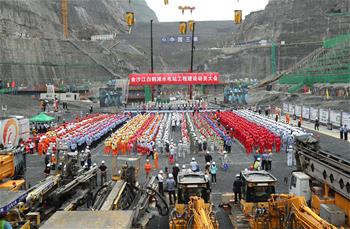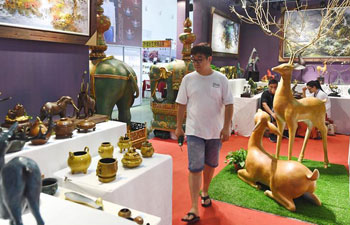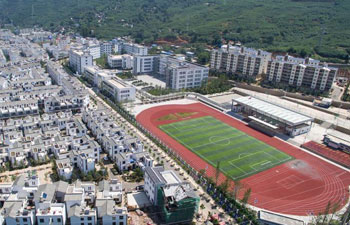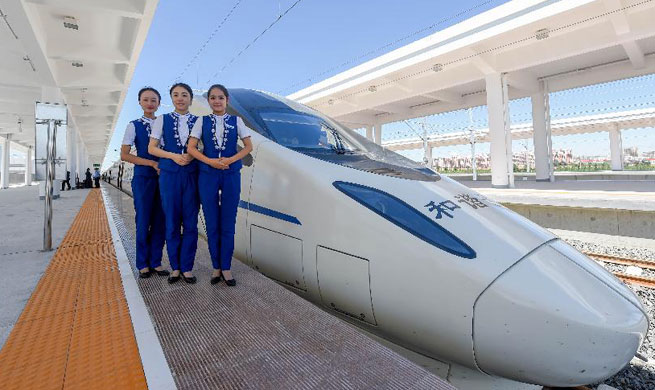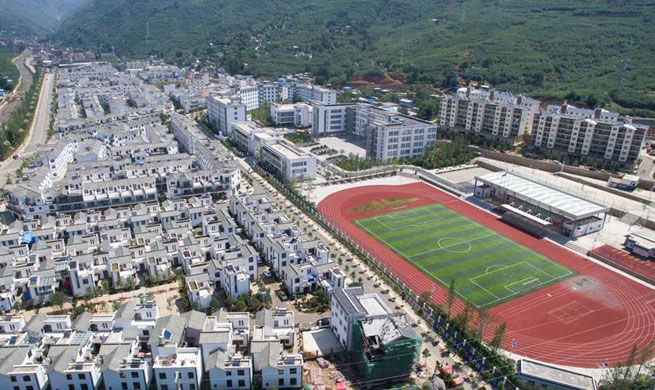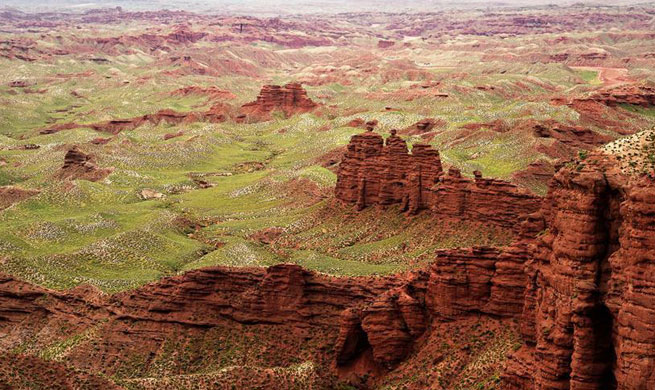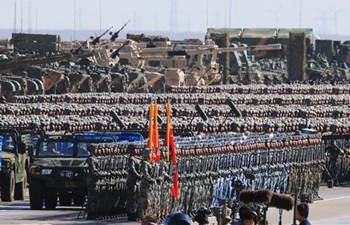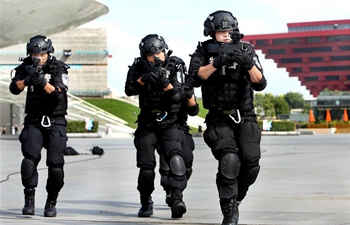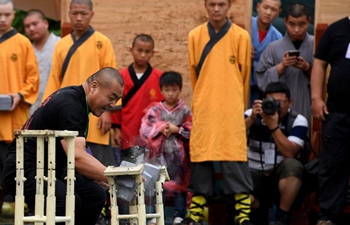KIGALI, Aug. 3 (Xinhua) -- Central African country Rwanda is set to hold its presidential elections on August 4, which will be the third since the end of the ex-genocidal regime in 1994. The following are some basic facts about Rwanda:
Rwanda is a landlocked country and is located in the heart of Africa. It is bordered by Uganda to the north, Tanzania to the east, Burundi to the south and the Democratic Republic of Congo to the west, covering an area of 26,338 square kilometers.
Rwanda is also known as "The Land of Thousand Hills." It has five volcanoes, 23 lakes and numerous rivers, some forming the source of the River Nile. The Volcanoes National Park in the Virunga volcanic mountains with its high-altitude forests is world famous for mountain gorillas.
Rwanda is the highest densely populated country in the region with 415 inhabitants per square kilometer in 2012, according to the Fourth Rwanda Population and Housing Census conducted in 2012. The total population are 10,515,973, according to the 2012 census. 52 percent of the total population are women and 48 percent are men. 83 percent of Rwandan people live in rural areas.
Kigali is the capital city of Rwanda, which has a population of 1,132,686, according to the 2012 census.
There are 11 political parties in Rwanda, including the ruling party Rwandan Patriotic Front (RPF) chaired by incumbent President Paul Kagame.
In 1899, Rwanda became a German colony. In 1919, it became a mandate territory of the League of Nations, under Belgium. Rwanda gained independence from Belgium in 1962.
On April 6, 1994, then-President Juvenal Habyarimana died in an air crash along with Burundian President Cyprien Ntaryamira, which swiftly triggered a three-month-long genocide that claimed over 1 million lives, mostly ethnic Tutsis.
After taking control of Kigali on July 4, 1994, RPF formed a transitional government, which brought parties that did not participate in the genocide together. July 4 also marked the end of genocide.
Kagame has been president since 2000 when he was elected the president by ministers and members of parliament following the resignation of then President Pasteur Bizimungu. He was then reelected in the presidential elections in 2003 and 2010.
The 2003's presidential elections, the first multi-party presidential elections since independence, marked an end to the nine-year transition.




